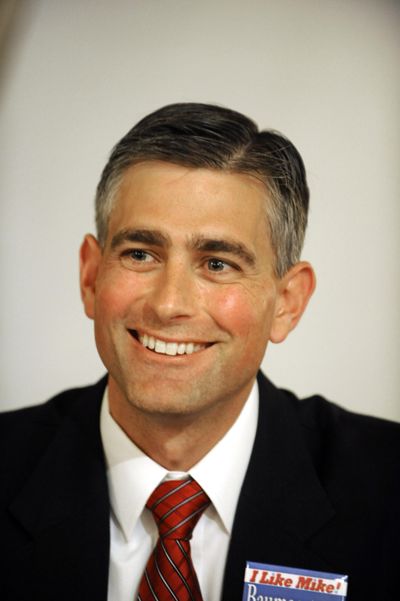Spokane lawmaker’s bill wouldn’t let cities enact sick leave or wage laws

OLYMPIA – A Spokane senator wants to keep other Washington cities from mandating paid sick leave as the Spokane City Council has, or from raising the minimum wage higher than state law requires.
The proposal may not get through the Legislature, but it quickly set off a war of words between the senator and the City Council president.
Republican Sen. Mike Baumgartner introduced Tuesday what he’s calling the “Seattle quarantine” bill, which would prevent city councils across the state from placing new worker rules on businesses. As currently written, it would void laws already approved such as the family and medical leave ordinance the Spokane City Council passed Monday over Mayor David Condon’s veto. But Baumgartner conceded Tuesday existing laws would likely have to be grandfathered in through later discussions.
“The goal of the bill is not to gut what’s already been done, it’s to prevent future damage,” he said.
Baumgartner referred to the Spokane City Council as a “mini Me” to the Seattle council, where the minimum wage is being raised to $15 an hour in phases over the next two to five years. “The state cannot afford to have labor laws made city-by-city by liberal city officials chasing progressive fads,” he said.
Spokane City Council President Ben Stuckart shot back that Baumgartner doesn’t respect local voters, who last year elected members of the council running on platforms that included family and medical leave for local businesses.
Baumgartner replied, “That doesn’t mean (council members) get to change ordinances on anything they want.”
Stuckart said cities don’t need to be lectured by the Legislature, “which hasn’t gotten its act together on education,” a reference to ongoing struggles by state lawmakers to comply with a court order to meet constitutional requirements to adequately fund public schools.
“Maybe he should run for City Council if he wants to be a city councilman,” Stuckart added.
Baumgartner said he believes the city level is too small for setting workplace laws like a higher minimum wage or mandatory sick leave. The state could face a patchwork of workplace laws that would discourage business growth, he said.
Stuckart said, “Studies show that the better off your workers are, the better off your economy is.”
His bill would require new worker laws to be set either by the state or by counties as “a good geographic compromise” that recognizes different areas of the state have different economic conditions, Baumgartner said.
That would also mean any new laws in the Spokane area would be controlled by the county board of commissioners, which currently has three conservative Republicans, rather than the City Council, which while nominally nonpartisan, currently has a veto-proof 6-1 liberal-leaning majority.
The bill is likely to get a hearing in the Senate Commerce and Labor Committee, where Baumgartner is the chairman, which almost guarantees it will be considered for a floor vote in the Senate. If it passes there, its prospects in the Democratic-controlled House are less optimistic, but Baumgartner said it could be part of discussions over further efforts to raise the minimum wage and other workplace regulations.
Stuckart said the city’s lobbyist probably will testify against the proposal when it has a committee hearing.